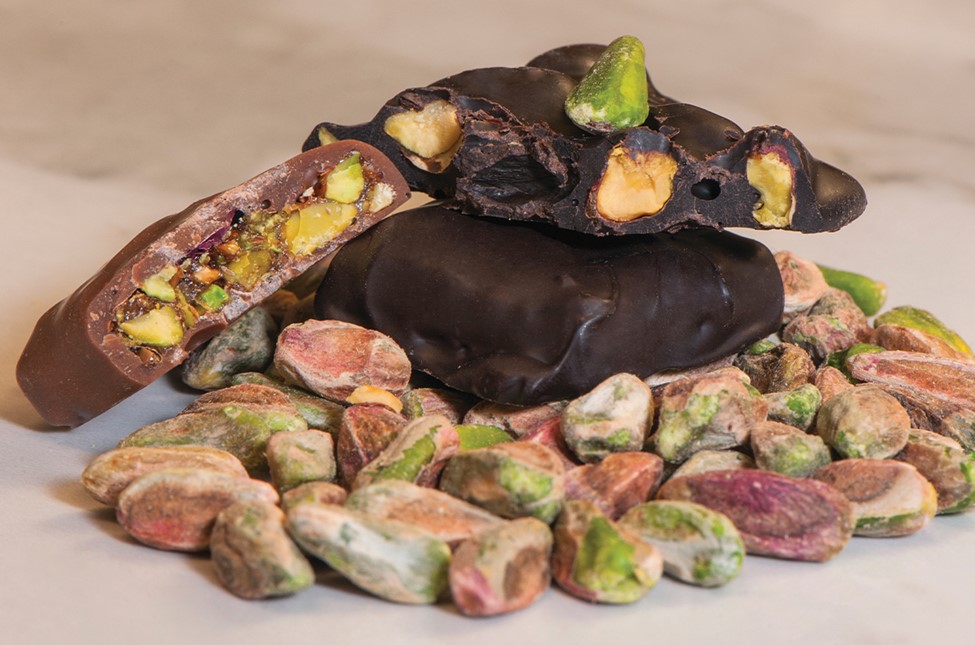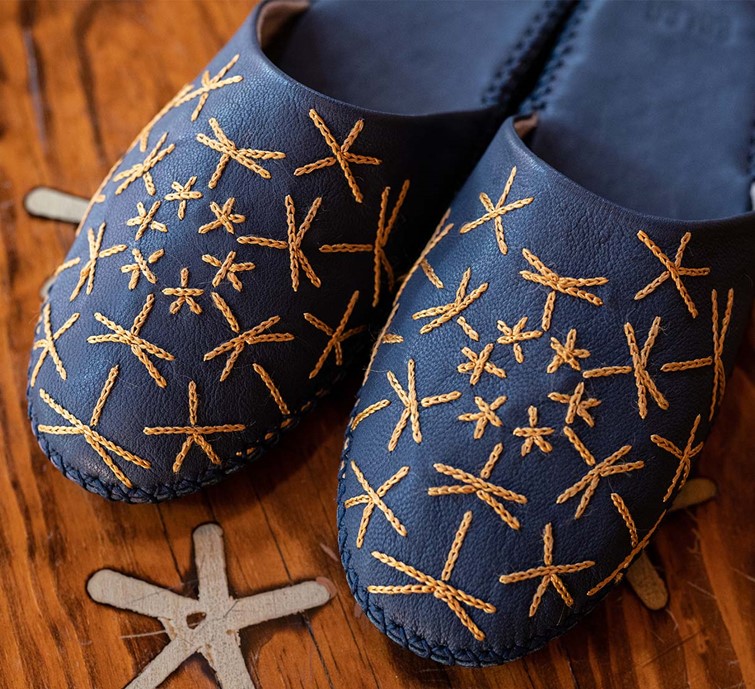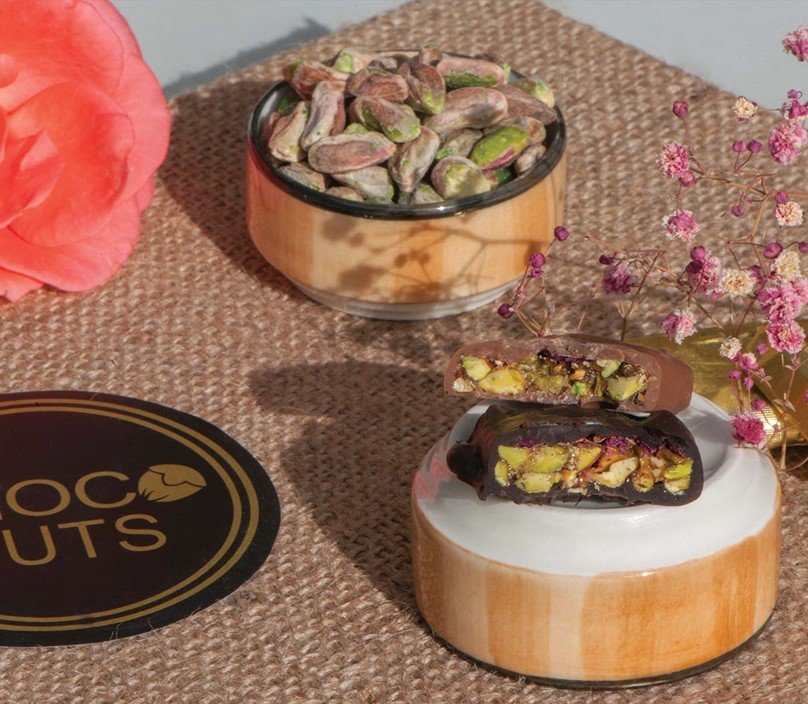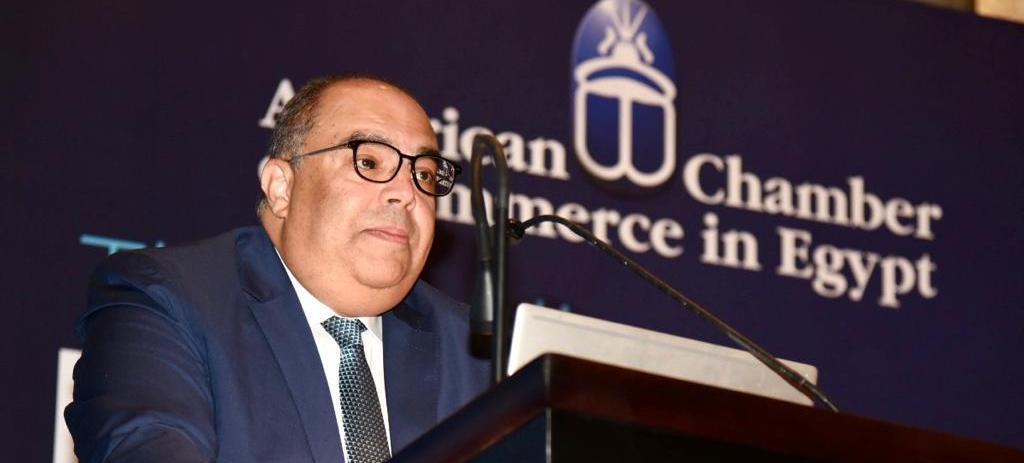More and more university graduates are looking to open businesses after finishing their education. Being one’s own boss is increasingly appealing to an increasingly rebellious, well-educated generation. A CT Corporate survey published in December 2021 found “a whopping 61% of recent college graduates want to start their own businesses … Forty-five percent think it’s very likely they will do so, and 20% have already started a business of their own while in college. Even the 30% of recent grads who admit it’s highly unlikely they’d ever start a business say they would like to.”
That is good news, as the government believes entrepreneurs will help resolve Egypt’s economic problems, including unemployment, and increase local manufacturing and exports. In April 2021, the minister of planning and economic development announced the “One Million Entrepreneurs” by 2030 campaign.
To that end, the government and private sector, represented by incubators, angel investors and venture capitalists, are building an ecosystem that should help local startups thrive. However, an African Bank Development (AfDB) report titled “Entrepreneurship in Egypt: 2022 Ecosystem Overview” detailed significant “gaps” in those efforts. Meanwhile, three niche high-end successful entrepreneurs who started businesses in the past five years more or less operate outside that ecosystem.
The interviews were edited for length and clarity.
Ideas, ideas
Raising awareness among school and university students by teaching them what it takes to be entrepreneurs is the natural starting point. Ayman Ismail, who wrote the AfDB report, noted, “the objective … is to raise awareness among potential entrepreneurs with the idea of ‘entrepreneurship as a career choice’ as opposed to employment.”
In Egypt, awareness programs are diverse. In Cairo, school and university programs include YouThinkGreen, Enactus and Injaz. TV and radio channels also have programs like El Forsa and Radio 9090. There also are several annual events held locally, including RiseUp Summit and Techne Summit. Lastly, online portals include EgyptInnovate, StartupScene and Wamda. “These programs are concentrated in Cairo and target a privileged socioeconomic segment,” said the AfDB report.
NGOs focus on rural areas. They include Egypt Network for Integrated Development, Nahdet El Mahrousa, CleanTech Arabia and Dandara Cultural Center.
Despite the abundance of programs, three Cairo-based niche high-end entrepreneurs, who should have benefited from such programs, found inspiration elsewhere.

Nada Talaat, founder of Nada Talaat Design Studio, a home accessories designer, recalls: “It started when I studied decor at Cairo’s Faculty of Fine Arts. It exposed me to various cultures, which inspired all my projects, and today inspires all my designs.
“When I graduated, I worked for several years with an interior design and decor company, where I knew my passion was making home accessories. It was what I did best — coasters, mirrors and the like, rather than furniture.
“My designs take inspiration from countries with deep-rooted culture and history such as African countries, Nuba south of Egypt, Islamic Egypt and Morocco, and even India. My unique twist is that I use shells, mosaics, copper and other exotic materials that don’t necessarily belong to the country from which I took inspiration. The result is a unique fusion. The other point of differentiation is my selection of which patterns to use.
“Lastly, every piece is unique and handmade by Egyptian artisans with a contemporary look that integrates [usually foreign] cultural patterns. The outcome is distinctly different from what you would buy in Khan El Khalili [a historic accessories bazaar in Cairo], for example.”

Gigi Ibrahim, a co-founder of Bulga, a company that designs and produces high-end traditional Egyptian slippers, says: “I met [my business partner at Bulga] Mona Sorour when we were working for a social enterprise. I was shifting my career from journalism, and [Sorour] had a fine arts background specializing in product development and design. We clicked — our personalities, work ethic and goals.
Bulga’s business model is inspired by the social enterprise we worked for. They take products made by women in remote underprivileged areas [such as Shalateen and Siwa] and sell them as is.
“After three years working for that company, we resigned to create Bulga. The footwear is handmade in our workshop in Cairo. We would design the unique parts we want to put on our slippers and work with underprivileged nomad women artisans to make them using authentic materials and techniques such as braided leather fittings. Then we take those parts to our Cairo workshop and integrate them into the slippers.
“Our vision was to create a new product category that brings back designs from Egypt’s past, which dates back to pharaonic times.”

Lamees Al Njem, founder of Choconuts, a chocolatier, says: “The decision to start Choconuts was unexpected, yet inevitable. I started my career at Nestle Middle East as an intern. [There] my business and managerial acumen widened, and so did my taste buds. I [was] testing new formulas in [the company’s] in-house clinical kitchen. My taste buds developed quickly, understanding the science of spices and ingredient mix in food technology. It eventually became a passion.
“In 19 years, I have worked in the headquarter of GSK Consumer Healthcare and BD Medical devices handling global digital marketing and commercial excellence roles. Throughout this time, I continued to be passionate about food and cooking.
“I [relocated to Egypt from Dubai] during COVID-19, a stressful time for everyone. People needed treats to relieve those hard times. During that year’s Ramadan, my husband and I were invited to friend and family gatherings. So I started gifting them chocolates I made at home instead of going to patisseries and risking getting infected.
“I got extremely positive feedback and encouragement to make it a business. So I started using Instagram (choconuts_egypt) to promote and sell my brand of ‘cluster chocolates,’ where there is a nut in every bite. I decided to import my raw materials to ensure the quality … I wanted. I developed a limited menu of sugar-free dark (72%) non-bitter chocolates with the option of a variety of roasted nuts, including cashews. I also use rose petals in my range and have the reduced sugar milk version of Choconuts.
“Going the extra mile with the packaging was another unique part of the business. I also have consultancy services, where Choconuts works with customers to design their chocolate trays. Additionally, I can customize chocolates as company giveaways and for customers ordering large quantities or wanting them on a regular schedule.”
In the AfDB report, Ismail noted that successful entrepreneurs don’t benefit from government and private-sector programs because of their narrow geographic and socioeconomic scopes and “limited activities within schools and universities.” Even among those who benefit from those awareness activities, there is “limited but growing digital content.” In particular, there is a shortage of Arabic content. Ismail also blamed the lack of a “popular, high-profile startup competition,” which raises public awareness.
For entrepreneurs to benefit from awareness programs, Ismail noted that organizations operating outside Cairo “need additional support to scale and extend their efforts” nationwide. He added that their current business models are “not sustainable.” They rely on “hype waves” to attract startups and entrepreneurs. As a result, “many of them are less likely to continue over the mid- or long-term.”
Building skill sets
Learning what it takes to become a startup owner and knowing the technical aspects of a business are essential for success. The government offers the Technical and Vocational Education (TVET) program to build specialized skill sets. Ismail said that in public universities, “the focus is on adding [extracurricular] activities and events rather than creating major reform that would include entrepreneurship content and culture.” Those would be most effective if they supported formal entrepreneurship education.
That has left high-end private universities, such as the American University in Cairo, German University in Cairo, British University in Egypt, Canadian University and Nile University to build Egypt’s entrepreneurship skills in the formal education space.
NGOs offer online courses to educate the public on entrepreneurship, including Edraak, Nafha and Al Mentor. “Massive Open Online Courses represent an effective tool to provide large-scale, low-cost education and training, especially beyond Cairo,” said Ismail. However, few … platforms exist [and] their content remains limited.”
Ismail said Injaz Egypt, for example, offers entrepreneurship courses in schools and universities, and entrepreneurship boot camps, such as Elre7la, “are becoming increasingly popular.”
That limited presence means many entrepreneurs must self-educate or gain the technical experience and skills they need on the job.

Talaat: “I got the basic design skills from my university education. What I needed was first-hand experience dealing with customers. That I got from my job with the home decor company. The other missing part was business administration and how to run a company. I learned it by talking informally to my friends and acquaintances who understood these aspects.
The other thing I had to learn by myself was marketing — How to give my brand the most exposure possible. I started self-learning the importance of, and how to capitalize on, word-of-mouth. Then I learned how to market my work to galleries, which was more straightforward. And lastly, how to sell to the mass public.
Also, I learned a lot of negotiation skills [on the fly] to convince traditional artisans to make one or two pieces of a design I made and to accept feedback on its quality. The key is persistence.
Ibrahim: “The list of things we had to learn ourselves felt endless. It started by spending four years understanding the technical aspects of how to make durable, comfortable slippers and how to produce them. It was very different from traditional slipper-making. We started from scratch, as we knew little about footwear manufacturing.
Managing our supply chain was trial and error, where we learned street-wise skills they don’t teach you in schools.
We also had to learn to convince potential hires that our business is sound, given that slipper production is declining, particularly handmade footwear. We devised a radical idea to invite the artisans we wanted to hire to the festivals we were participating in so that they see for themselves that we are selling well.

Sorour: We spent two years training at a traditional workshop on how to make Egyptian slippers. The challenge was that I was a female entering an industry that was ‘only men.” It took persistence and turning a deaf ear to doubters until we learned how it is done.
The second thing we had to deal with was convincing the traditional slipper makers of our new ways. There was a lot of resistance at first until they saw for themselves that our techniques were better.
Then came the challenge that those male workers never had a woman to lead them. So we had to learn how to deal with artisans quitting just because they could deal with the fact a woman supervises them. We had to contend with this for the first year until we proved successful. Now, we have a strong core team loyal to the brand and us.
To learn the business administration side, we participated in an accelerator program under UNIDO. We also have a mentor who now sits on the company’s board of directors.
Al Njem: “What I had to learn by myself related to specific aspects of being a business owner in Egypt. That included dealing with Egyptian workers, the marketplace, freelancers, etc. I had already accumulated a lot of knowledge about making chocolates — how to create great tastes — and management experience in multinationals.
“The other aspect I learned was making Choconuts an ‘experience.’ The key is taste and generosity. Customers have different preferences and can’t taste the product before buying as we are only on Instagram. Therefore, customer trust is essential to our growth. I discovered sending complimentary pouches with each order, containing chocolate types the customer didn’t order, was an ideal solution given our current setup.”
“Lastly, I had to find out the paperwork and procedures necessary to import what we needed.”

First steps
Realizing the dream of being a business owner requires mentoring and access to significant resources from day one. Most dreamers don’t have that. Enter startup incubators. In Egypt, there are four types.
The first is private-sector incubators, which “typically provide their services in exchange for equity,” Ismail said. The most prominent are Flat6Labs, Innoventures and EdVentures. Second, university incubators “provide their services as a community service.” The list includes high-end private universities, such as AUC and Nile University, as well as state-owned Cairo and Assiut universities.
The government also has incubators, such as TIEC, Falak and Intilac, as part of the national strategy to promote startups. Meanwhile, NGOs offer incubation services, such as Nahdet El Mahrousa, Endeavor, AWTAD, and Misr El Kheir GESR, “as part of their mission,” Ismail said. Lastly, international agencies like USAID, SEED, EU InnoEgypt and the African Development Bank also offer incubation services within universities.
However, some entrepreneurs prefer to find success by seeking opportunities themselves, hoping the quality and taste of their products are enough to grow their business.
Talaat: “My breakthrough was finding my way to participate in Diarna [a specialized handicraft exhibition] in 2020. It was essential to understand my clientele better. The following year, I qualified for the government-organized Turathna exhibition, which gave me the exposure I needed to build my brand.
“Since then, I have been participating in as many exhibitions and festivals as possible. Each has added to my brand’s reputation, exposure and sales.
“I decided to use a traditional business model, selling my pieces online, in galleries, and in exhibitions. It is a tried and tested model. The only thing you could consider unique is that we can, to an extent, customize pieces and are constantly in touch with customers to tell them our latest news. I also have decided to outsource my production, and I currently have three artisans working on my pieces, with me focusing on quality control and selling them.
“As for paperwork to formalize the business, I asked experienced acquaintances and researched online what the government needs. Eventually, I registered. It was a hassle, but it wasn’t cripplingly difficult.”
Ibrahim: “Our first step was to find a plot to build our workshop, as having our own production facility is essential to ensure the quality of our slippers. We searched and found a piece of land that would make our access to artisans and suppliers easy.
“Then, we researched the equipment and resources we needed to operate the workshop. We had to import some things, such as needles from Sweden. Materials and colors are 100% locally sourced. We negotiated with suppliers directly and hired a foreman and six other workers.
“We got our big break when Mix & Match, a local retailer, called us and ordered a big shipment in 2020. This year, we will be selling them the fourth batch. Then, we qualified to showcase our products at the Turathna exhibition. After that, the Grand Egyptian Museum operators called asking if we wanted to showcase our slippers in a shop inside the building. Turathna also invited us to showcase our products at November’s Conference of the Parties.
“We are seeking a bigger workshop space with a permanent contract. The government’s well-equipped plots in Fostat are the ideal place for us. However, we have yet to find the government agency responsible for renting them. It is the same when applying for one of the government’s initiatives that support startups.”
Al Njem: “For now, I am keeping my business on Instagram only. There are two reasons. The first is to ensure the quality and consistency of my premium chocolates. The second is the personal relations and care we give to every customer, which would take a step back in a commercial setup.
“I rejected several offers from retailers to place Choconuts on their shelves. [The company] needs to grow slowly but surely. I plan to own chocolatier boutiques in Cairo, Dubai and London within the next six years.
“I didn’t access any government programs that support startups and entrepreneurs. I went straight to the three factories that make the chocolates for me and agreed with them to dedicate a production line for my chocolates.
“The only support I got was from my husband, who is Egyptian and therefore knew how to get around with securing paperwork to register with the government. He is also helping me secure intellectual property rights for my brand name and logo. He is my and the business’s backbone.”
Ismail explained in the AfDB report that “many of the programs are nascent and require significant technical and financial support,” singling out those in universities as notably lacking. The AfDB report also cited the need for “deeper sectoral specialization to build stronger knowledge and networks.”
Lastly, Ismail stressed the need for those incubators to change their business model from the current “not-for-profit” to generating returns. He said the existing model “creates a sustainability risk.” There also must be more mentors “to provide broader support to the entrepreneurs.”
Money to grow
The most crucial aspect for most aspiring business owners is securing sufficient funding to grow their businesses. According to Ismail, “access to finance has long been identified as a limiting factor for Egyptian companies, whether startups or established SMEs.” That need will likely remain even as the business grows.
Talaat, Ibrahim, and Al Njem are not seeking any outside financing, whether equity or debt, as their initial business financing has come from their pockets and revenues are sufficient to realize their growth plans.
Talaat won a “small” amount of money by joining Nileperners, a central bank initiative implemented by Nile University. She still used her own money to start the business. Sorour and Ibrahim also won a small amount by entering the Nahdet El Mahrousa El Garage, a competition. “I think the amount we won was comparable to one month’s net profit.” They also entered a VISA-sponsored competition, ending in the top 10 of 1,500 applicants. “We didn’t win any prize money from it,” Sorour says.
However, Bulga is in a solid financial position, as the company broke even after one month of selling its products and, according to Ibrahim, has remained “cash positive” ever since. That revenue has been enough to meet her and Sorour’s growth strategy. “We will not seek outside financing from investors or sell part of the company until Bulga reaches the potential that we believe it is capable of,” says Sorour. “We don’t want to sell equity cheap.”
Al Njem also is generating enough revenue to spend on the business. “I didn’t take a loan and didn’t seek any outside injections from angel investors, venture capitalists, or any other similar source,” she says. “That could change later if and when I decide to open my own retail stores, as that would require significant investments.”
In the AfDB report, Ismail said there are too few seed investors focusing on venture financing. In addition, the number of angel investment networks in Egypt that invest in high-risk ideas is limited. Furthermore, there are too few innovative funding mechanisms (crowdfunding, venture debt, royalists, and revenue-sharing deals) to offset startup risks.
Finally, Ismail said many entrepreneurs don’t know how to raise funds. That includes “the ability to prepare pitch desks, financial projections and valuations, and negotiate term sheets and complex contracts.”
What does 2023 hold?
For many entrepreneurs, 2023 will define their businesses. The key to their success will revolve around adaptation from the unpredictable pound devaluation to central bank monetary policy decisions to inflation. Our three entrepreneurs plan to cement their business foundations while keeping an eye on the future.
Talaat: “I don’t manufacture anything in-house. However, my artisans are affected by the dollar, as the raw materials they use, such as wood, are imported. As a result, I see an increase in costs every couple of days. It then becomes a case of negotiating with the artisans on the price and a judgment call on my part to set customer prices.
“This year, we will add a B2B line, where we design and customize gifts for corporate clients that want to give their employees valuable giveaways. We are currently working on several deals with banks and large companies. It is a more robust revenue stream that would ensure large economies of scale and reduce costs.
“I will also be looking to enter more events and exhibitions to increase exposure and sales. Hopefully, Turathna [the government exhibition] will organize more festivals this year … My strategy is to focus more on impulse sales.
“We will design and produce smaller items that use less material to lower costs without compromising quality. We are also working on this year’s collection and the launch event.
“That should help push the business to more growth during these troubling times or [at least] sustain it until the worst is over. I am confident as our sales usually drop when a crisis hits, but eventually, people start buying again.”
Ibrahim: “All our products are 100% made in Egypt, from the leather to the colors to the production process. Yet, we are still exposed to the dollar. Our suppliers import some of their raw materials. We also use imported equipment and pay for digital marketing in dollars to increase exposure and open local and international markets.
“Additionally, we predict an increase in the cost of transportation, even within Egypt.
“We will increase our prices slightly in response to those rising costs. But we will be careful to stay within a certain threshold where customers won’t find it too expensive to pay those amounts for a slipper.
“We will also increase production and export more. That would increase our economies of scale [and] our dollar revenue, which we can use to cover our dollar-denominated costs.
“[Increasing sales locally and internationally] will depend on how many events and exhibitions Turathna organizes in 2023, which we can participate in … without incurring the … cost of showcasing our products in local and international exhibitions.”
Al Njem: “We make payments in dollars to get our raw materials and digital marketing. We also suffer from a rise in transport costs. We use women who own cars and need extra income to make deliveries in Egypt. To cover the additional costs, we had to increase our prices twice. Yet, our margins are getting tighter.
“We also offer smaller packages across our entire range of chocolates [to maintain affordability and sales]. The upside is that people continue to buy no matter what happens but in smaller quantities. On the plus side, our chocolates are more competitive abroad, partially solving our rising costs and dollar problems.
“I am also [seeing] if I can reduce my dependence on imported raw materials. Instead, buying some of them from local suppliers. At the very least, find less expensive imported raw materials of the same quality.
“I am still keen on opening a store. However, I am placing it on pause until the economy improves. Instead, my revenue [in 2023] will go into improving the branding, increasing online presence, and improving product quality.”







